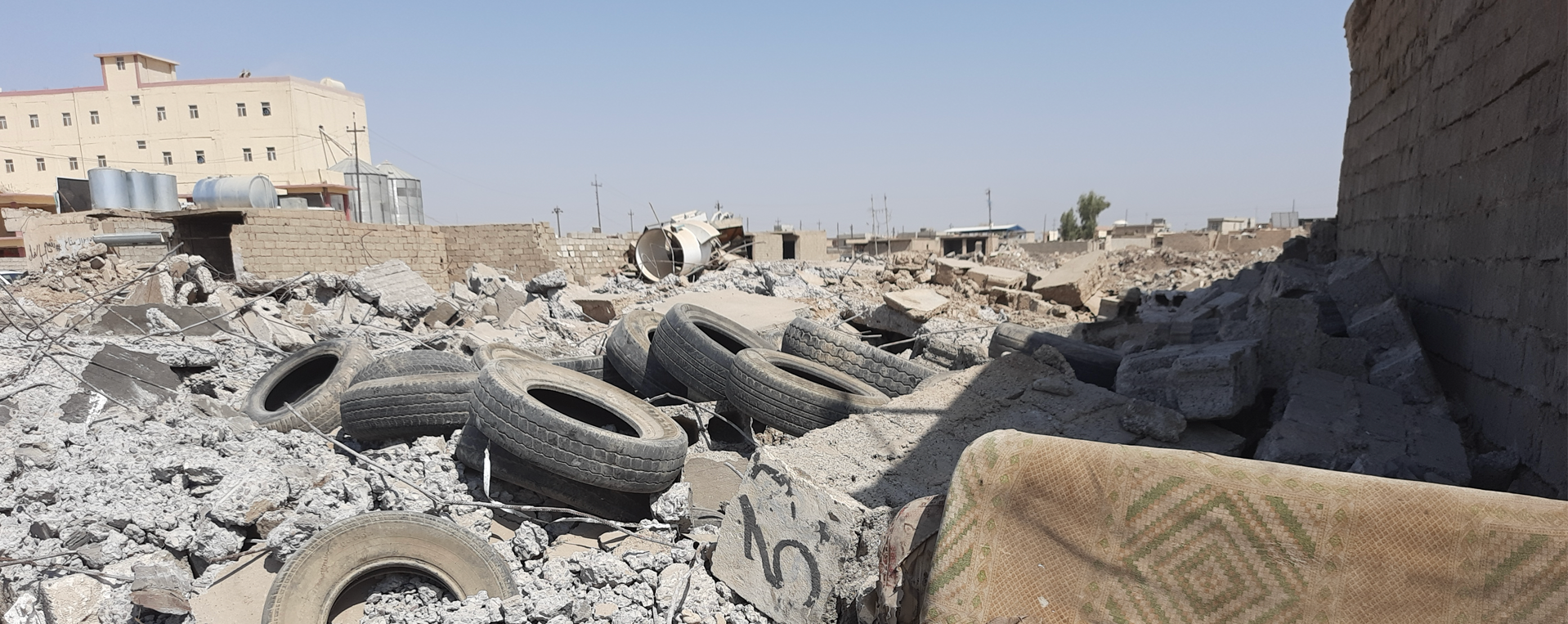The bureaucratic way the Dutch state treats victims of its military operations has been made painfully clear again last week, in a court room in The Hague, where judges heard survivors of the 2015 Dutch airstrike on Hawija that killed at least 85 civilians. Now, eight years later, they are suing the Dutch State for compensation. Instead of taking any responsibility, the Dutch State avoids liability by resorting to formalities and bureaucracy. The Netherlands should put the victims’ needs first. This starts with a more humane policy.
On Tuesday 24 October, several survivors were given the opportunity to speak and share with the court how they had experienced that fatal night of 2-3 June 2015. The witnesses – who had travelled from Iraq to take part in the hearing – gave emotional accounts. They shared how it had felt as if a nuclear bomb went off next to their homes and how they had tried to rescue their relatives from under the rubble, often in vain. That night and in the days that followed, they lost sons, daughters and other loved ones. Several people had brought pictures of their lost relatives, which they showed in court. During the hearing it also became clear once again through witness statements and video footage just how much material damage was caused by the airstrike and its secondary explosion, with hundreds of houses, shops and businesses suffering damage.
A sincere apology
In 2022, we published, together with the Iraqi NGO Al-Ghad and researchers from Utrecht University, the findings of extensive research into the direct and reverberating civilian harm effects of the airstrike. We also asked survivors of the airstrike how the Netherlands could meaningfully take responsibility for what it had done. Their message could not be clearer: the Netherlands should acknowledge their suffering, offer a sincere apology, and provide individual financial compensation, so that the victims and survivors could pay their medical bills and begin rebuilding their homes.
Eight years have passed since the airstrike and 1.5 years since the publication of our report, and the people in Hawija feel ignored and abandoned. The Netherlands previously financed two reconstruction projects in Hawija, but NRC reporting showed how these projects were largely ineffective and did not meet the needs of the airstrike’s victims. In fact, many of those affected turned out not to have been aware of these projects or that these were the Netherlands’ reaction to the harm it had caused.
During the court hearing in The Hague, it became clear that the Dutch State is again choosing to dismiss the victims’ demands and wishes. While the State attorneys expressed regret about the fate of those affected by the airstrike, they simultaneously maintain the Dutch position that an apology or assistance is not their responsibility since the military operation was conducted lawfully.
Arguing lawfulness is a typically bureaucratic response: the Netherlands holds on to rules and procedures and completely loses sight of the human element. For people who have lost their children or homes, who have become permanently disabled, or who suffer the psychological consequences of the airstrike’s impact on a daily basis, it does not matter whether the Netherlands acted lawfully or not. For these past eight years, they have been asking for compassion: someone who – on behalf of the State – stands with them, meets them face-to-face, offers a sincere apology, and who will help mitigate the negative impact of the airstrike.
Acknowledgment of suffering
It is also important to realise that a more humane approach towards civilian casualties is not unprecedented. During military operations in Afghanistan, NATO Member States – including the Netherlands – sometimes chose to meet the victims of their operations and offer them an ex gratia payment, thereby explicitly not acknowledging legal liability. The United States established an ex gratia fund to enable such payments to victims of its military operations years ago. PAX previously advocated for the establishment of a similar fund in the Netherlands, a call that has so far gone unanswered by the Ministry of Defence. Moreover, PAX research recently found that such payments fulfill two important victim needs: people regard voluntary compensation payments as an acknowledgment of the harm that was inflicted upon them, as well as a necessary means that enables them to rebuild their lives.
The Netherlands needs to develop a new and more humane civilian casualty policy. So that in a next war victims of Dutch military operations are not required to come to The Hague eight years after the fact to plead for much-needed compassion and compensation.
Note: A Dutch version of this commentary appeared in the NRC of Tuesday 30 October.




